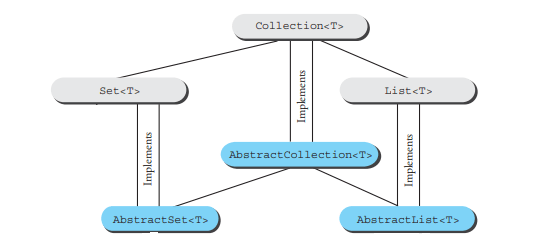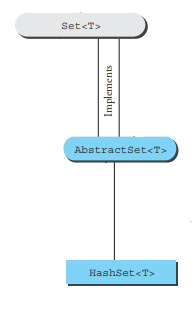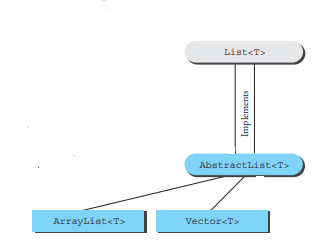Collections:
Put all your eggs in one basket and watch that basket.
-Mark Twain
Collection: is a data structure for holding elements.
Collection<T>: is the highest level of the java's framework for collection.
-Two main interfaces that extend Collection<T> interface:
1.Set<T> interface:
- Does not allow duplication
- Does not impose an order on the elements
2.List<T> interface: (Allow duplication)
- Allow duplication
- Impose an order on the elements

-Two Abstract classes used (for convenience) to implement Set<T> and List<T> interface:
1.AbstractSet<T>
2.AbstractList<T>
-Another Abstract class implements Collection<T> interface which is AbstractCollection<T>, and it is a skeleton class for the Collection<T> interface

-If you want a class that implement The Set<t> interface, use the class HashSet<T>
HashSet<T>: is the concrete class implements the Set interface.
It can be used as a base class if you want to implement the Set interface.
-It is implemented using a hash table.

-If you want a concrete class that implement The List<t> interface, use
either the class ArrayList<T> or Vector<T>
They can be used as a base class if you want to implement the Set interface using your own class.






Top comments (0)